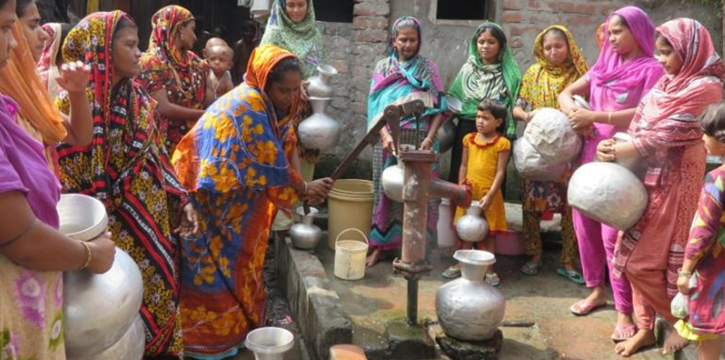The project significantly improved disaster preparedness, water and sanitation facilities in ten urban slums in Barisal, reaching almost 28,700 individuals. The project brought about significant household and community level changes, establishing links with local government services.
The project’s community driven decision making, especially involving vulnerable groups increased the chances of long term success and sustainability. The community adopted disaster preparedness measures, and most households gained access to climate-resilient water and sanitation facilities. About 90% of households reported being prepared for disaster, which will reduce future injuries and loss of life. Additionally, 79% of homes now have access to improved drinking water sources, decreasing water-borne diseases; this increased from 32% prior to the V2R project. Latrine coverage was improved, reducing the risk of diseases that thrive on fecal contamination, with 69% of households now having handwashing devices and 57% being equipped with soap and water post-defecation.



